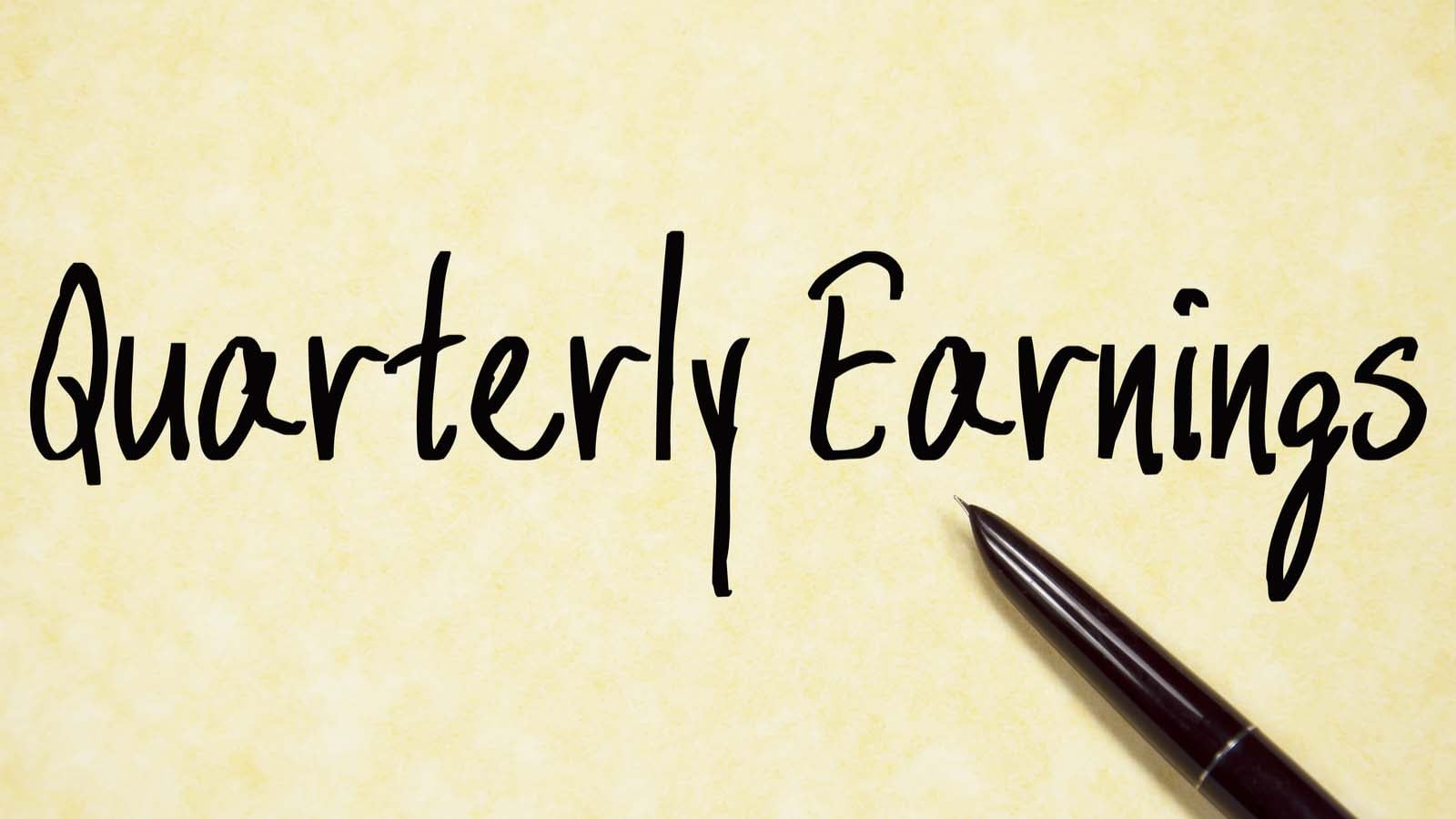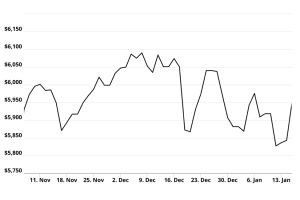
How Q2 earnings will probably beat expectations … recession forecasts are dropping – does it matter? … what is “important and knowable” today … big news later this week
On the year, the S&P is up 18%… the Nasdaq is up 36%… and the Nasdaq 100 is up 43%…
(We’re ignoring the lowly Dow because it’s only up 5%.)
But we’re now entering an earnings season that could derail those gains if earnings don’t measure up. So, how do you keep the party going?
Simple…
You sandbag estimates so that earnings can beat, Wall Street can declare a stunning victory, and stock prices can push even higher.
Don’t fool yourself that this doesn’t happen – Wall Street analysts are professional sandbaggers.
When you follow the money, you see how the game works
Buy-side analysts usually work for groups that manage money – think hedge funds and private equity groups.
These buy-side analysts know that their clients will be far more forgiving of earnings estimates that are too low rather than too high. After all, if you’re an analyst whose recommendations do even better than you projected, you have a happy client – and a loyal customer who keeps paying you.
But if real earnings consistently come in below your projections, your customers will likely be holding stocks that selloff in the wake of the earnings misses. This results in very unhappy clients who are likely to take their money elsewhere.
So, what we see, quarter after quarter, are earnings estimates that undershoot the mark. This way, earnings can miraculously beat expectations, Wall Street can boast the “unexpected” strength of the stock market, and analysts can keep their gravy trains rolling.
But don’t take my word for it. Let’s jump to FactSet, which is the go-to earnings data analytics group used by the pros.
For context, as of last Friday, 30 companies had already reported Q2 earnings. The blended earnings number that includes estimates as well as the actual performance of these 30 companies is -7.1%.
We’ll pick up with FactSet’s analysis (bold added):
Given that most S&P 500 companies report actual earnings above estimates, what is the likelihood the index will report an actual decline in earnings of -7.1% for the quarter? …
…The actual earnings growth rate has exceeded the estimated earnings growth rate at the end of the quarter in 37 of the past 40 quarters for the S&P 500. The only exceptions were Q1 2020, Q3 2022, and Q4 2022…
How are the numbers trending to date?
Of the 30 S&P 500 companies that have reported actual earnings for Q2 2023 through July 14, 80% have reported actual EPS above the mean EPS estimate.
In aggregate, actual earnings reported by these 30 companies have exceeded estimated earnings by 8.8%.
Can you believe it?! Despite inflation and a weakening consumer, these companies are beating estimates! Who could have guessed that with a track record of “beats” in 37 of 40 quarters, we’d be on track to beat yet again?
But this is how we keep the market headed higher.
Meanwhile, a different set of analysts have lowered their odds of a recession
In this case, these analysts are economists.
Let’s jump to The Wall Street Journal:
Economists are dialing back recession risks.
Easing inflation, a still-strong labor market and economic resilience led business and academic economists polled by The Wall Street Journal to lower the probability of a recession in the next 12 months to 54% from 61% in the prior two surveys.
While that probability is still high by historical comparison, it represents the largest month-over-month percentage-point drop since August 2020, as the economy was recovering from a short but sharp recession induced by the Covid-19 pandemic.
Yesterday, Goldman Sachs lowered its recession probability to just 20%.
From Jan Hatzius, the chief economist at Goldman:
The main reason for our cut is that the recent data have reinforced our confidence that bringing inflation down to an acceptable level will not require a recession.
Good news, right?
Absolutely – no one wants a recession. But before we start popping corks, we should ask how good these forecasters are at their job.
The answer is underwhelming.
From FiveThirtyEight:
…Economic downturns usually come as a surprise.
A 2018 study conducted by Loungani and others looked at 153 recessions in 63 countries between 1992 and 2014 and found that the vast majority were missed by economists in both the public and private sector.
This was painfully true in the case of the global financial crisis in 2008, which wasn’t officially declared a recession until it had been going for almost a year…
“Very, very few recessions have been predicted nine months or a year in advance,” [said] Prakash Loungani, an economist at the International Monetary Fund.
And as you might guess, studies show that when these economists get it wrong, it’s usually because they’re too optimistic.
But wait – hedge funds aren’t paying these economists. What’s the motivation for undershooting the mark in this case?
Back to FiveThirtyEight:
Part of the problem, according to Loungani, was that in the past, economists were unwilling to risk their reputations by predicting an imminent recession that never came to pass.
In discussing this with my follow Digest-writer Luis Hernandez, he pointed out that this reputational fear is playing out in front of us. So many economists were calling for a recession six-to-12 months ago, and yet clearly, it hasn’t happened. The longer we go without one, the more pressure some economists may feel to re-forecast to avoid being wrong.
Given this reputational influence, should we be concerned that recession risk is higher than is being reported?
I’m reminded of legendary investor Warren Buffett’s take on macro factors. From his speech to University of Florida MBA students in 1998:
…We have never not bought or bought a business because of any Macro feeling of any kind because it doesn’t make any difference.
Let’s say in 1972 when we bought See’s Candy, I think Nixon put on the price controls a little bit later, but so what! We would have missed a chance to buy something for $25 million that is producing $60 million pre-tax now.
We don’t want to pass up the chance to do something intelligent because of some prediction about something we are no good on anyway…
I don’t think about the macro stuff…
What you really want to do in investments is figure out what’s important and knowable. If it’s unimportant or unknowable, you forget about it.
Coming full circle, Buffett’s comment is a reminder to take Q2 earnings and recession forecasts with a huge grain of salt, and instead, focus on what is “important and knowable” about today
And what is that?
Well, first, bullish sentiment is firmly in control of this market. Though we could be in for a short-term pullback due to the strength of recent gains, more broadly, Wall Street wants to push higher. “Up” is the prevailing direction today.
This is why we’ve been recommending adopting a trader’s mindset and joining in with those gains for as long as they’re here. Instead of “don’t fight the Fed,” we’ve viewed this market as “don’t fight the bull.” That’ll be our stance until we see signs of material weakening.
Second, what is “important and knowable” is that Artificial Intelligence is going to be huge. We don’t know exactly how huge, or the specific companies that will reap the most rewards, but we know we have reached an economic and cultural tipping point with AI.
This is why all three of our analysts – Louis Navellier, Eric Fry, and Luke Lango – have been steering their readers into AI stocks in recent months for returns that, in some cases, are already triple digits. On this note, later this week, we’ll be bringing you exciting news about our three analysts and their take on AI investment opportunities today. More on that to come…
For now, what’s our takeaway from all this?
Well, we have a Q2 earnings season that’s likely to “surprise” to the upside… recession forecasts are so unreliable that we might as well follow Buffett’s lead and not worry about them … and the “important and knowable” reality of today’s market is it wants to climb – especially AI stocks.
Until something changes, our trading marching orders remain pretty clear.
Have a good evening,
Jeff Remsburg




